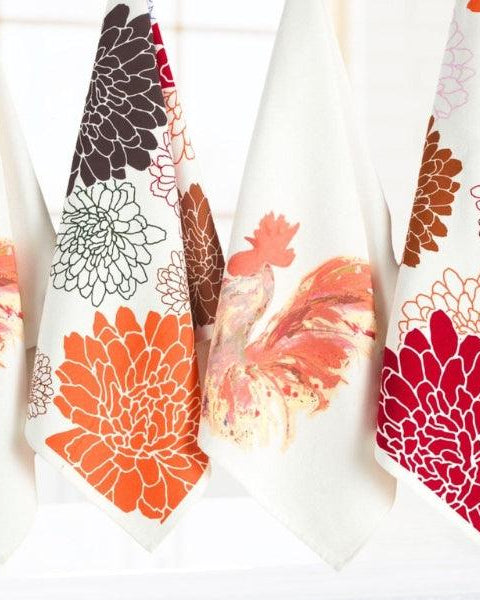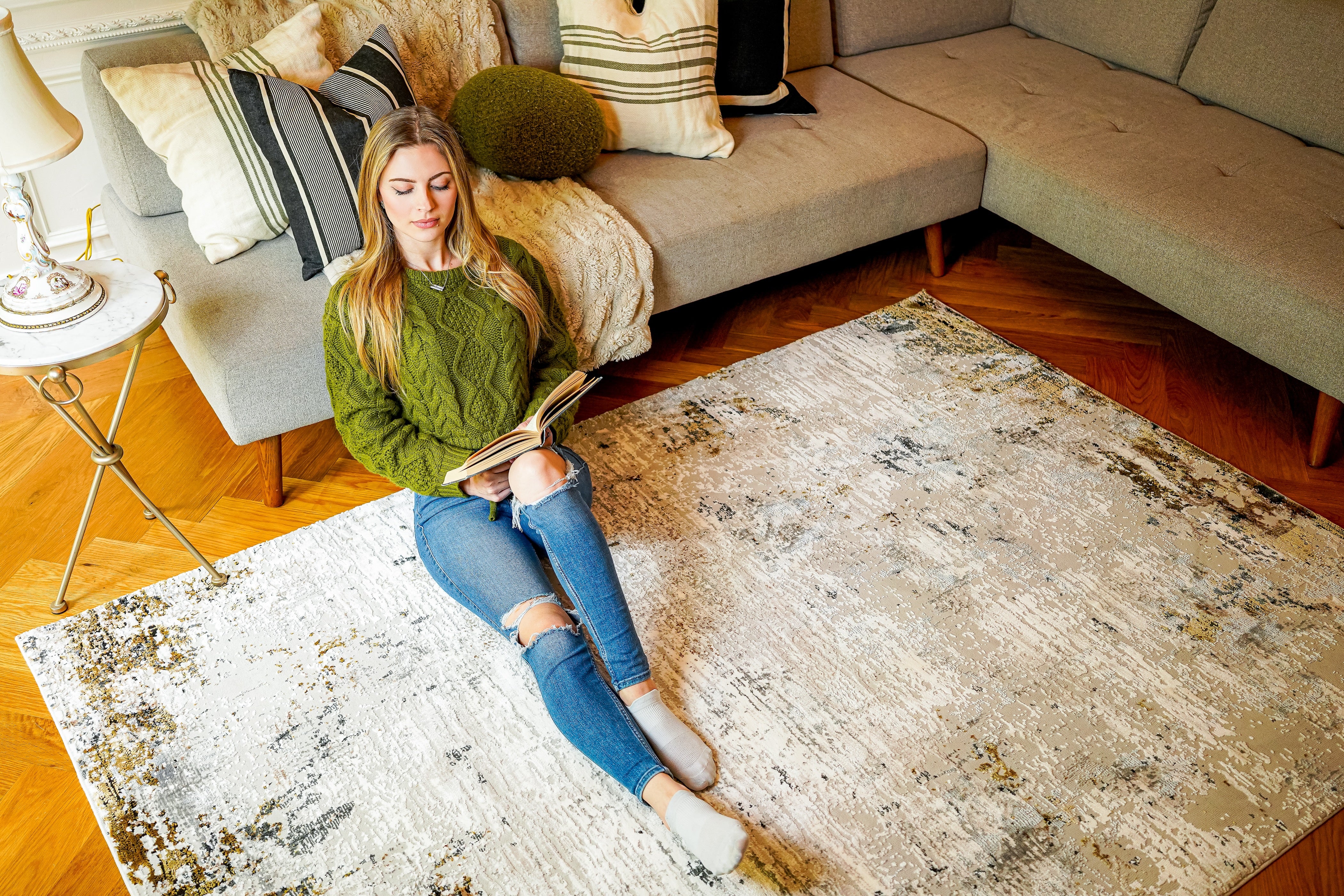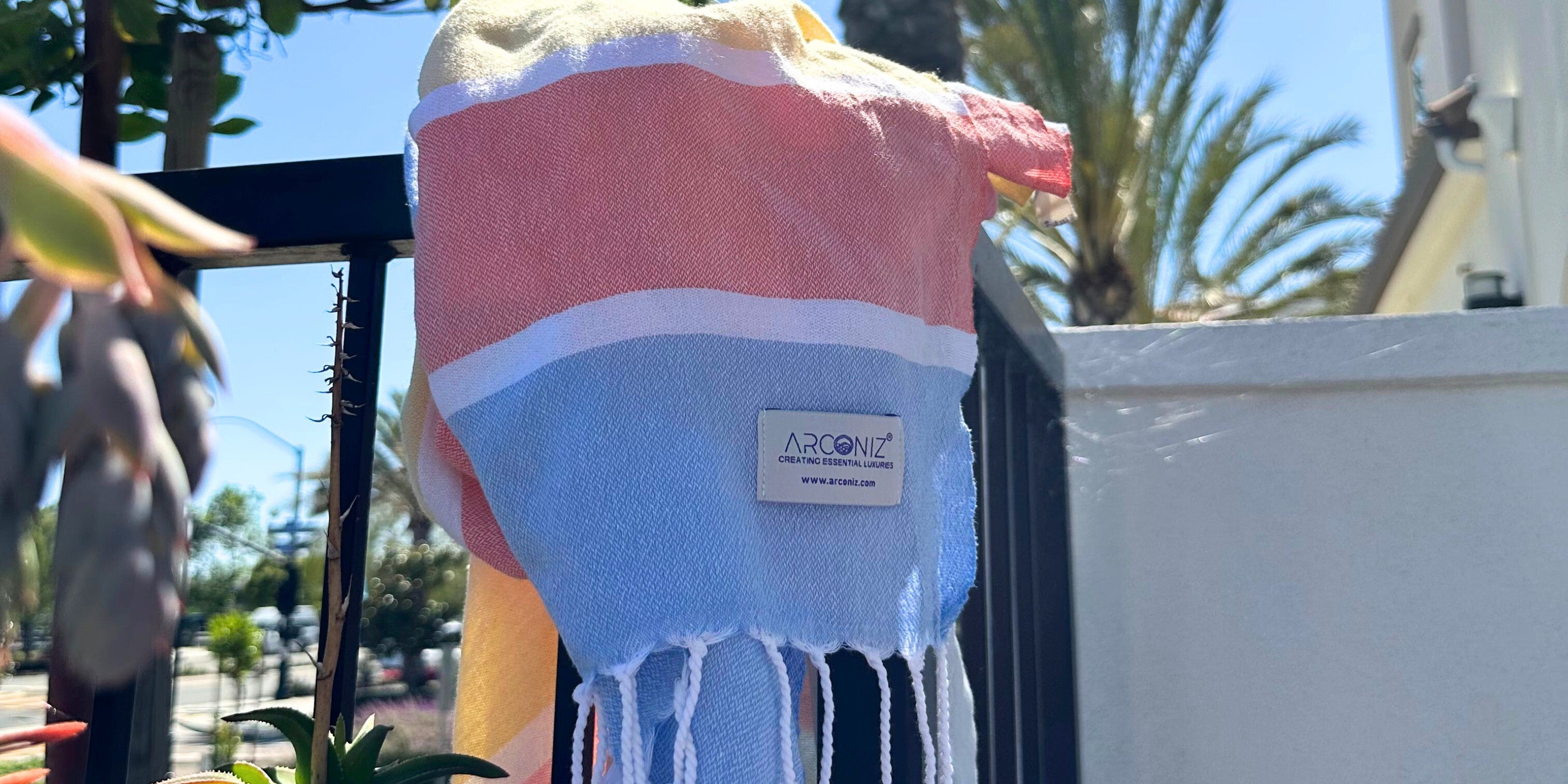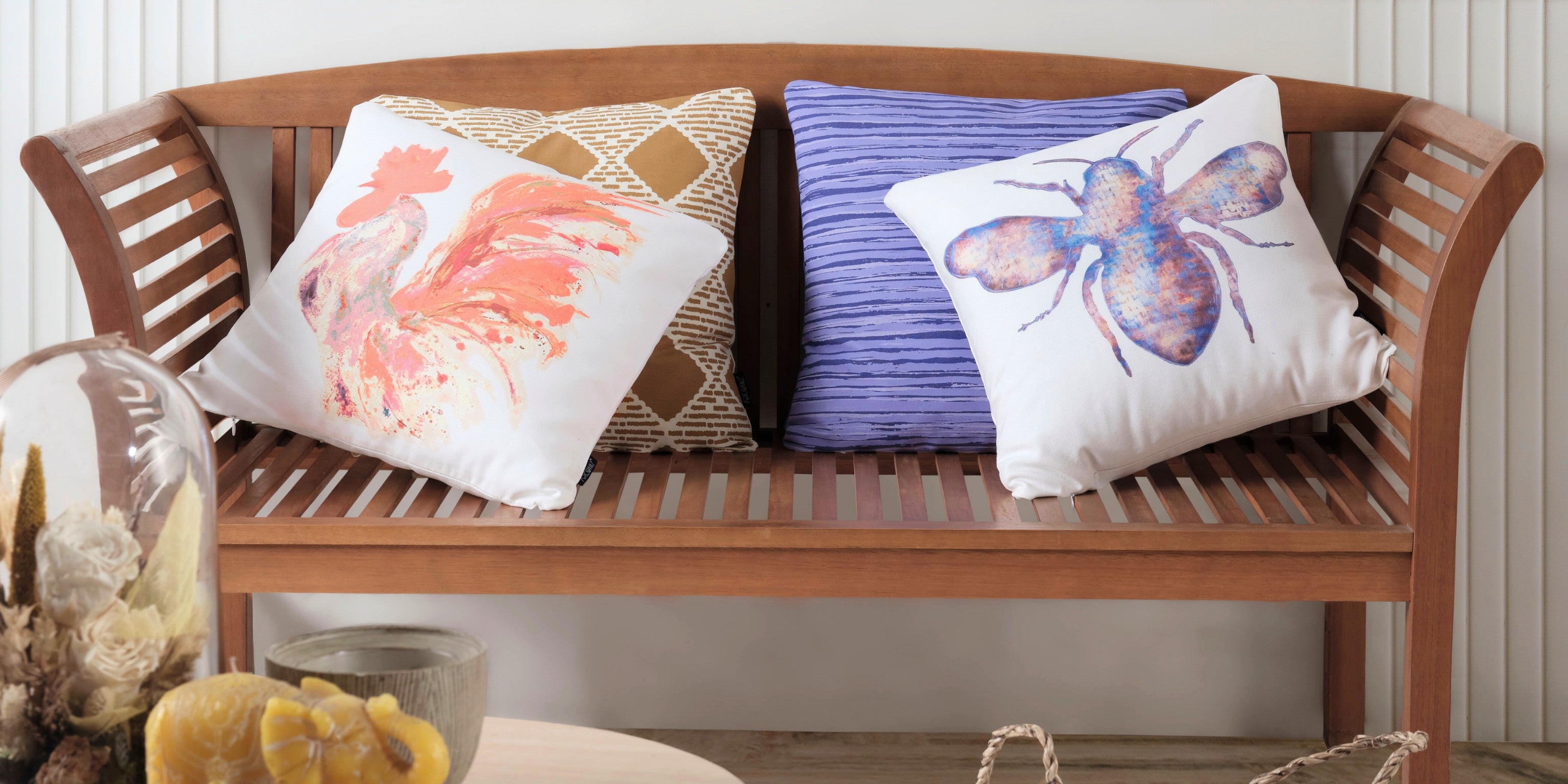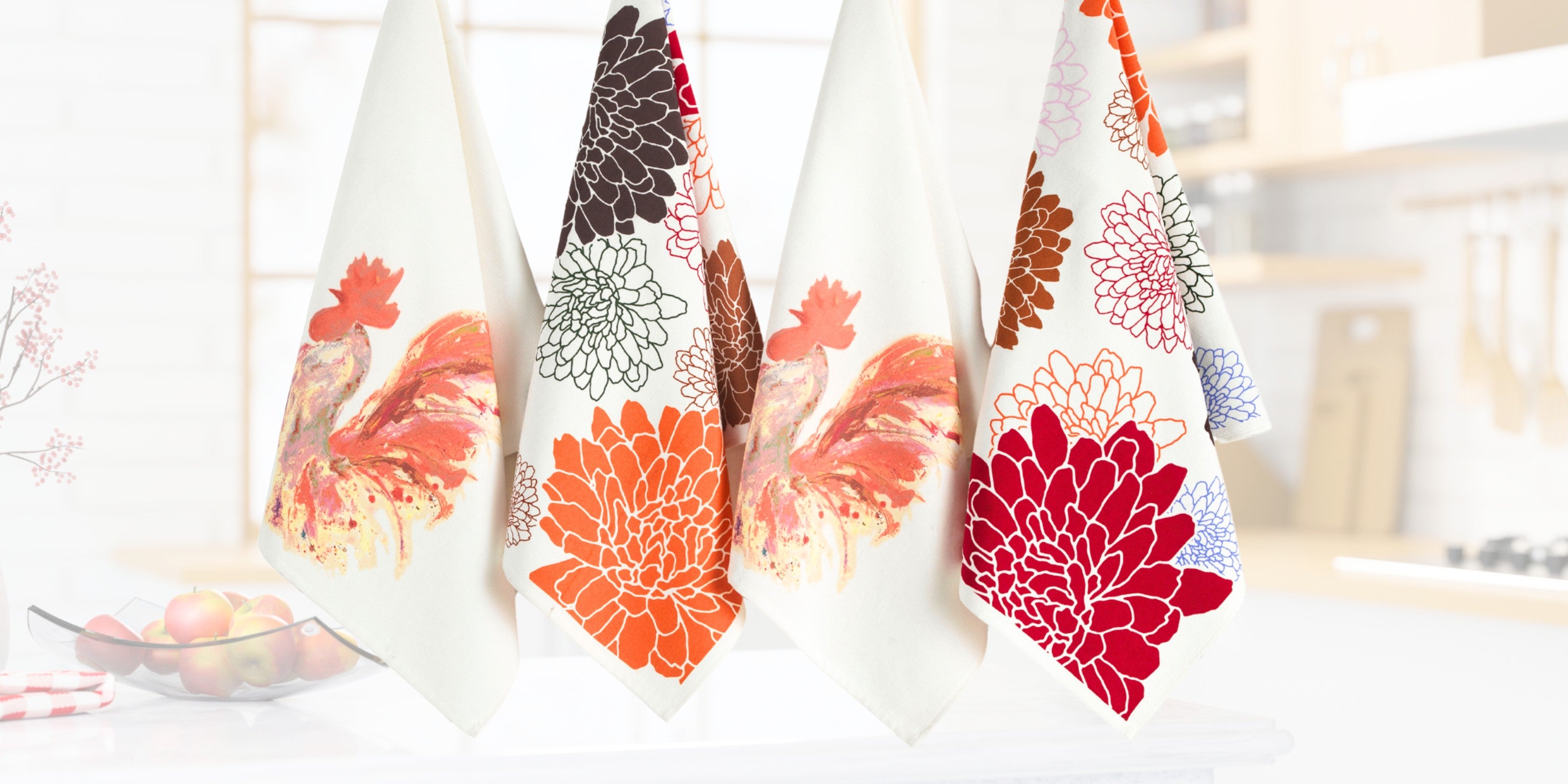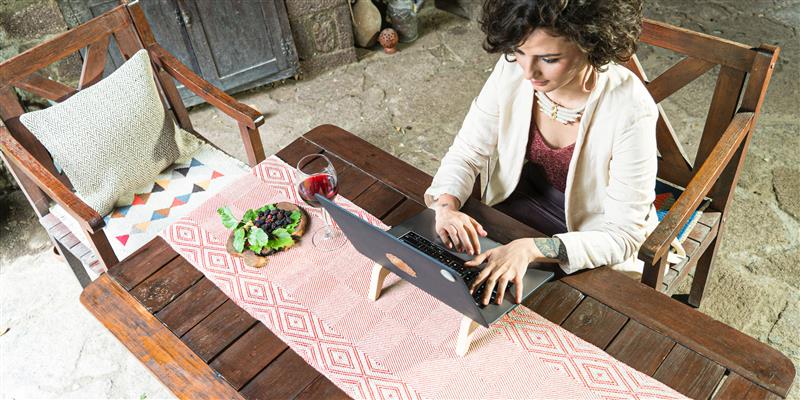In an era where conscious living is no longer just a trend, homeowners are rethinking their approach to kitchen linens. The shift toward organic-inspired kitchen textiles is not just about following home decor trends. It’s about creating healthier living spaces that reflect our values and uplift the heart of our homes.
As we grow more aware of the hidden chemicals in everyday items, this kitchen linen movement becomes a meaningful step. It leads us toward safer, more sustainable home life.
Today’s kitchen is more than just a place to cook. It’s a family gathering spot and often an entertainment hub. This versatility calls for textiles that work well, support family health, and respect the environment.
The choice between conventional and sustainable linens matters. It affects more than looks. It touches everything from indoor air quality to durability and environmental care.
The Hidden Dangers of Conventional Kitchen Linens
Behind the innocent look of kitchen towels and table linens hides a worrying reality. Many people don’t know these textiles often go through heavy chemical processing. This can bring harmful substances right into your cooking space.
Treatments for bright colors, wrinkle resistance, and stain protection often use formaldehyde, heavy metals, and synthetic chemicals. These can stay on the fabric even after you bring them home.
Budget kitchen linens made of polyester or blends come with more problems. They may absorb well at first but soon develop a waxy coating. This buildup, from detergents and softeners, reduces their absorbency. Worse, synthetic fabrics can release microplastics when washed. This harms the environment and can trap bacteria because the material doesn’t breathe.
The economic promise of cheap linens is misleading. Chemical treatments damage fibers, causing towels to wear out quickly. This leads to frequent replacements, extra spending, and more textile waste. Each year, millions of tons of fabrics end up in landfills.
Dyeing methods raise another major concern. Some synthetic dyes have azo compounds and heavy metals like lead and chromium. These can release harmful substances. When such fabrics touch food, dishes, or hands, they risk chemical transfer. For families aiming for clean, healthy living, this is a real concern.
For practical tips on safer options, check out this helpful guide by the Environmental Working Group.
Understanding Truly Sustainable Kitchen Linens
Sustainable kitchen linens represent a fundamental departure from conventional manufacturing approaches, prioritizing both environmental responsibility and human health throughout the entire production cycle. The foundation of sustainability begins with fiber selection, where organic cotton, hemp, and linen naturally cultivated without synthetic pesticides, herbicides, or genetically modified seeds form the basis of superior kitchen textiles.
The production philosophy behind sustainable linens emphasizes minimal processing and low-impact manufacturing techniques. Natural fiber preparation involves mechanical rather than chemical treatments, preserving the inherent strength and breathability that makes materials like organic cotton and hemp ideal for kitchen use. This approach not only maintains fabric integrity but also ensures that no harmful residues remain in the finished product.
Water stewardship plays a crucial role in sustainable textile production, with responsible manufacturers implementing closed-loop water systems that minimize consumption and prevent contamination of local water sources. The dyeing process utilizes low-impact, plant-based colorants or carefully regulated synthetic dyes that meet strict environmental and safety standards, eliminating the heavy metals and toxic compounds found in conventional textile processing.
Ethical labor practices form an integral component of the sustainable textile movement, ensuring that the hands crafting your kitchen linens work in safe conditions with fair compensation. This human-centered approach to manufacturing creates products imbued with care and craftsmanship, resulting in superior quality that translates to enhanced durability and performance in your kitchen.
OEKO-TEX® Certification: Your Kitchen Safety Guardian
OEKO-TEX® certification represents the gold standard for textile safety, providing consumers with scientifically-backed assurance that their kitchen linens are free from harmful substances. This comprehensive testing protocol examines finished textiles for over 100 potentially harmful chemicals, including pesticides, heavy metals, formaldehyde, and aromatic amines, ensuring that certified products meet the strictest human health requirements.
The significance of OEKO-TEX® certification becomes particularly pronounced in kitchen applications, where textiles frequently contact food, dishes, and cooking surfaces. Unlike basic safety claims that may lack verification, OEKO-TEX® testing occurs at accredited laboratories using internationally recognized methods. This rigorous approach means that when you choose OEKO-TEX kitchen towels, you're selecting products that have undergone scientific scrutiny to verify their safety for food-adjacent use.
The certification process evaluates textiles throughout their entire production chain, from raw materials through final manufacturing stages. This comprehensive approach ensures that harmful substances haven't been introduced at any point in the textile's journey, providing complete transparency about product safety. For families with young children, individuals with chemical sensitivities, or anyone prioritizing clean living, OEKO-TEX® certification offers invaluable peace of mind.
Beyond immediate safety benefits, OEKO-TEX® certified textiles often demonstrate superior performance characteristics. The absence of chemical treatments that can break down over time means these fabrics maintain their absorbency, softness, and durability throughout extended use. This longevity not only provides better value but also supports sustainable consumption patterns by reducing the frequency of replacement purchases.
GOTS vs OEKO-TEX®: Understanding the Distinction
While both GOTS (Global Organic Textile Standard) and OEKO-TEX® certifications represent important advances in textile safety and sustainability, understanding their distinct focuses helps consumers make informed decisions for their specific needs. GOTS certification primarily verifies the organic status of fiber content, ensuring that textiles contain a minimum percentage of certified organic fibers and meet environmental criteria throughout organic fiber processing.
OEKO-TEX® certification takes a different but complementary approach, focusing intensively on the safety of finished textile products regardless of their organic status. This distinction proves particularly relevant for kitchen textiles, where the primary concern involves ensuring that fabrics won't transfer harmful substances to food surfaces, dishes, or hands during use. While organic fiber content offers environmental benefits, OEKO-TEX® certification provides direct assurance about kitchen safety.
The testing protocols differ significantly between these certifications. GOTS evaluation emphasizes organic fiber traceability, environmental impact of processing, and social criteria throughout the supply chain. OEKO-TEX® testing, conversely, conducts extensive laboratory analysis of finished products, screening for harmful substances that could pose health risks regardless of their origin or the sustainability of production methods.
For kitchen applications, many experts consider OEKO-TEX® certification more directly relevant to consumer safety needs. Kitchen textiles face unique challenges, including frequent washing, exposure to food acids, and direct contact with consumables. OEKO-TEX® standards specifically account for these usage patterns, ensuring certified products remain safe throughout their intended kitchen lifecycle.
Arconiz's commitment to OEKO-TEX® certification reflects a safety-first philosophy that prioritizes immediate health benefits while maintaining strong environmental values. This approach recognizes that truly sustainable living requires products that protect both human health and environmental wellbeing, with safety forming the foundation upon which other sustainability benefits can build.
Summer Entertaining: Elevating Your Seasonal Hosting Game

The arrival of summer transforms kitchens into dynamic spaces that extend seamlessly into outdoor entertaining areas, making the choice of sustainable kitchen linens more crucial than ever. Sustainable textiles excel in warm-weather hosting scenarios, where their natural breathability, superior absorbency, and elegant aesthetics create the perfect foundation for memorable gatherings.
Summer entertaining demands kitchen linens that can transition effortlessly from indoor preparation to outdoor presentation. Natural fiber textiles like organic cotton and hemp possess inherent temperature-regulating properties that keep them fresh and functional even in warm conditions. Unlike synthetic alternatives that can feel clammy or retain odors in heat, sustainable linens maintain their pleasant texture and appearance throughout extended summer use.
The color palette of sustainable summer kitchen linens draws inspiration from nature's own seasonal transitions. Soft sage greens, warm terracotta tones, and creamy whites reflect the organic dyeing processes that create these hues while complementing summer's abundant natural beauty. These colors work harmoniously with fresh produce displays, herb gardens, and outdoor dining settings, creating cohesive design stories that celebrate seasonal abundance.
Patio and outdoor kitchen setups benefit tremendously from sustainable linen choices that stand up to increased use and varied conditions. The durability inherent in well-made natural fiber textiles means they maintain their appearance and functionality through frequent entertaining, multiple wash cycles, and the general wear that accompanies active summer hosting. This reliability allows hosts to focus on creating memorable experiences rather than worrying about textile performance.
The versatility of sustainable kitchen linens shines during summer entertaining, where the same high-quality pieces can serve multiple functions throughout an event.

Beautiful handwoven placemat and table runner sets can anchor elegant dinner party tables, while coordinating kitchen towels ensure seamless food preparation and cleanup. This multi-functionality reduces the need for numerous specialized textiles while maintaining sophisticated aesthetics.
Arconiz: Leading the Conscious Kitchen Revolution
Arconiz has established itself as a pioneering force in the sustainable kitchen textile movement, combining rigorous safety standards with timeless aesthetic appeal to create products that transform everyday cooking experiences. The company's unwavering commitment to OEKO-TEX® certification ensures that every kitchen towel, placemat, and table runner meets the highest safety standards while supporting environmentally responsible manufacturing practices.
The design philosophy underlying Arconiz's kitchen collection reflects a deep understanding of how textiles influence both kitchen functionality and home aesthetics. By focusing on natural materials processed through low-impact methods, the company creates products that enhance rather than compromise the healthy living environments their customers work to maintain. This holistic approach considers the complete lifecycle of each textile, from sustainable sourcing through end-of-life disposal.
Quality craftsmanship distinguishes Arconiz textiles in a marketplace often dominated by mass-produced alternatives. The company's attention to detail ensures that each piece not only meets immediate functional needs but also develops character and beauty through use. This commitment to lasting quality supports sustainable consumption patterns by creating products designed to serve families for years rather than seasons.
The natural color palettes and elegant textures characteristic of Arconiz textiles reflect sophisticated understanding of contemporary home design trends while maintaining timeless appeal. These design choices ensure that sustainable kitchen linens enhance rather than limit decorating options, making it easier for consumers to choose environmentally responsible products without compromising their aesthetic vision.
Arconiz's educational approach helps consumers understand the broader implications of their textile choices, sharing knowledge about certification standards, sustainable materials, and proper care techniques through their blog platform. This transparency builds trust while empowering customers to make informed decisions about their home textile investments.
Making the Transformation: Your Path Forward
The journey toward sustainable kitchen living begins with understanding that small changes can create significant impacts over time. Transitioning to eco-friendly kitchen decor doesn't require dramatic overnight changes thoughtful, gradual updates allow families to experience the benefits of sustainable textiles while building habits that support long-term environmental and health goals.
Starting with frequently used items like kitchen towels provides immediate opportunities to experience the superior performance of OEKO-TEX kitchen towels while establishing a foundation for broader sustainable textile adoption. The enhanced absorbency, durability, and safety of certified sustainable options quickly demonstrate their value, making subsequent purchases feel like natural progressions rather than difficult sacrifices.
The investment in quality sustainable kitchen linens pays dividends through extended product lifecycles, improved functionality, and the peace of mind that comes from knowing your family's health and environmental impact receive priority consideration. While initial costs may exceed conventional alternatives, the long-term value proposition strongly favors sustainable choices when considering replacement frequency, performance benefits, and health protection.
Summer presents an ideal time to embrace sustainable kitchen textiles, as increased entertaining and outdoor dining create opportunities to showcase the beauty and functionality of natural fiber options. The seasonal emphasis on fresh, natural foods and outdoor living aligns perfectly with the aesthetic and performance characteristics of sustainable linens, creating harmonious design stories that celebrate conscious living.
Conclusion: Embracing a Sustainable Kitchen Future
The transformation toward organic-inspired and sustainable kitchen textiles represents more than a simple product upgrade it embodies a commitment to healthier living, environmental stewardship, and thoughtful consumption that benefits families and communities alike. By choosing OEKO-TEX® certified kitchen linens, consumers take meaningful action toward reducing their environmental footprint while protecting their families from unnecessary chemical exposure.
The kitchen, as the heart of the home, deserves textiles that honor its important role in family life. Sustainable linens bring safety, beauty, and performance together in ways that enhance rather than compromise the cooking and entertaining experiences that create lasting memories. This summer, as you plan gatherings and refresh your kitchen spaces, consider how sustainable textile choices can elevate both your immediate environment and your long-term well being.
Ready to transform your kitchen with sustainable, OEKO-TEX® certified linens that prioritize both safety and style? Explore Arconiz's complete kitchen collection and discover how conscious textile choices can enhance every aspect of your culinary life. Your family, your guests, and your planet will thank you for making the sustainable choice.



